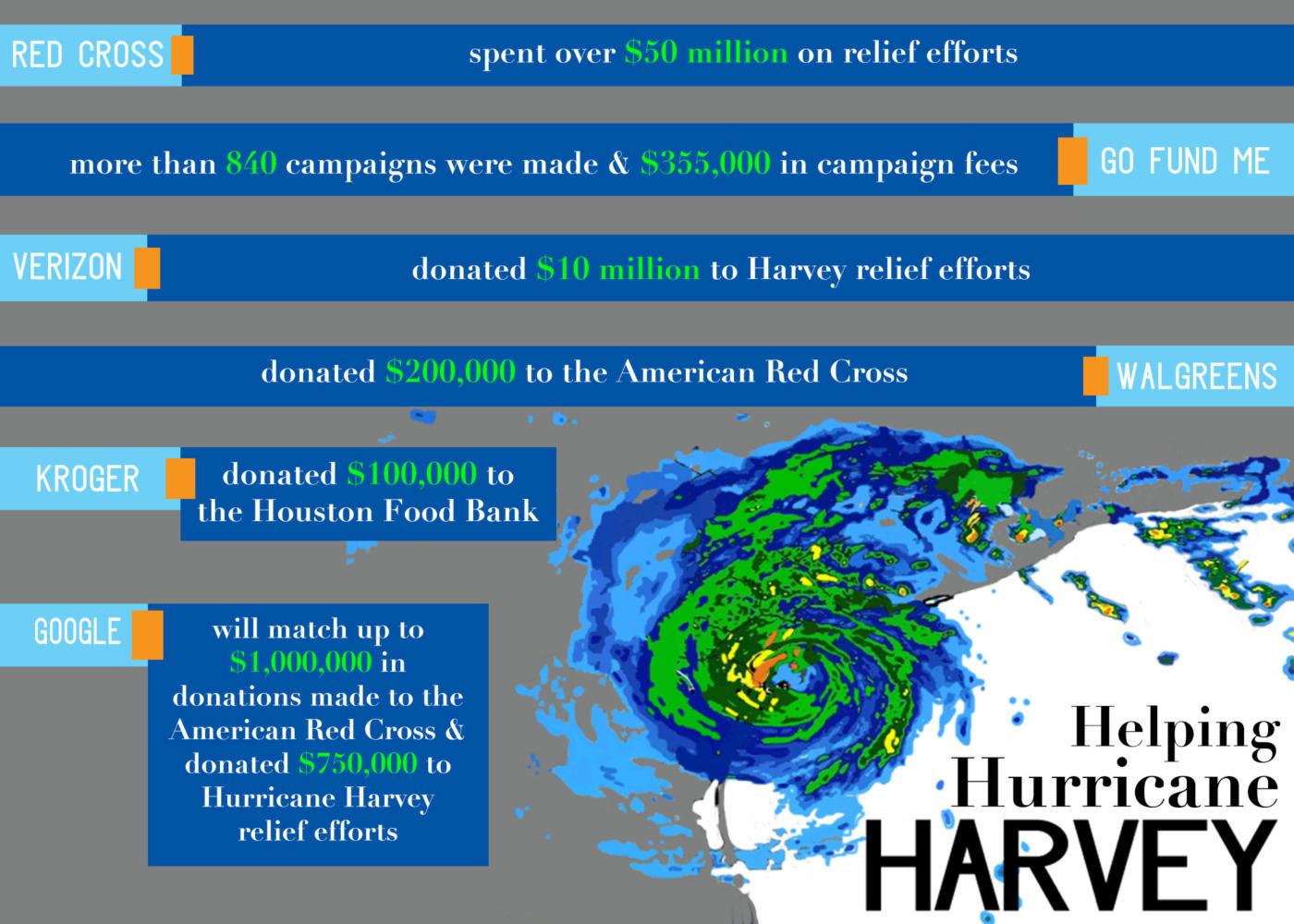Helping victims of Harvey: how to spot a scam
Many people in southern Texas have been affected by Hurricane Harvey. Organizations such as the American Red Cross, Verizon and Google have lent their support in light of the hurricane.
September 8, 2017
In light of Hurricane Harvey, big organizations, celebrities, churches and many other organizations are coordinating relief efforts for those who have been affected by offering ways to donate money or goods.
However, with this comes controversy regarding big corporations and where the donations really go.
The Federal Trade Commission (FTC) recommends donating to local charities or churches in the Houston area affected instead of big corporations since one may not know where the money is going.
For example, the American Red Cross has had a long history of falsifying information regarding the allocation of funds to the actual cause.
In 2010, the Haiti earthquake affected over 3.5 million people. At that time when organizations were donating, it was found out that the Red Cross kept a quarter of its donations ($125 million) to itself. The amount disclosed was far more than what they actually used.
As a result, many people distrust where their money is going.
“There’s too many questions in regard to how the money was spent in Haiti…it gives me cause to wonder about other money donated for other natural disasters,” Iowa Senator Chuck Grassley said, in a statement released by ProPublica and NPR.
NPR asked Red Cross executive Brad Kieserman how much money actually goes to Hurricane Harvey relief funds, but he did not know how much money actually goes to the funds. NPR attempted to contact the President and CEO but he was unavailable.
The American Red Cross’s website states “an average of 91 cents of every dollar the Red Cross spends is invested in our humanitarian services and programs.”
As of now, nothing has been confirmed about how much money is actually going to the cause.
The controversy from the American Red Cross has sparked controversy in relief funds hosted by other big companies.
GoFundMe, a company that allows anybody to setup their own campaign, has accumulated over 300 campaigns that have been created in regards to Hurricane Harvey.
Anyone can create a campaign and pretend that they need money or their family needs money.
In one instance, a fake campaign was created to “help” out a victim and his family. The victim confirmed that the campaign was fake.
As for now, the FTC and an array of other news sources suggest donating to local organizations or churches so you for sure know where your money is actually going.
Before donating to any charity, research is the best way to avoid scams. In a blogpost from the FTC, it highlighted ways to avoid scams.
Here is a list of credible organizations to donate to, according to the FTC:
- Houston Food Bank
- Food Bank of Corpus Christi
- Hurricane Harvey Relief Fund
- Houston Humane Society
- Global Giving
- YouCaring
Here is a list of sources to avoid scams:
- FTC Advice for Helping Hurricane Harvey Victims
- Charity Scams – FTC
- Wise giving in the wake of Hurricane Harvey
- Before giving to a charity
Follow Gracie on Twitter @graciebwell











